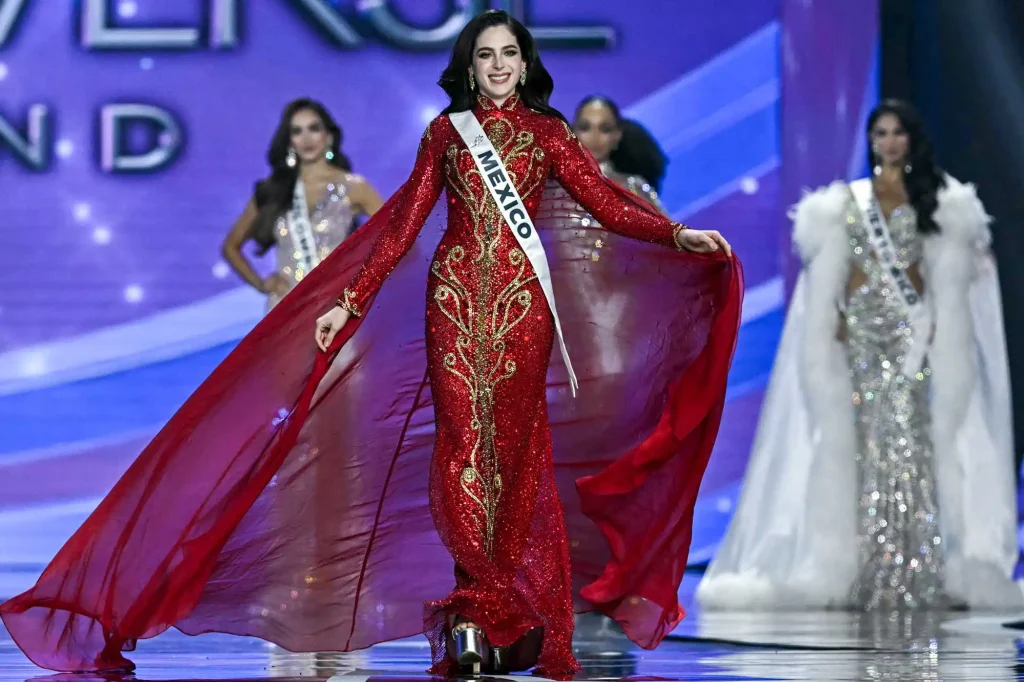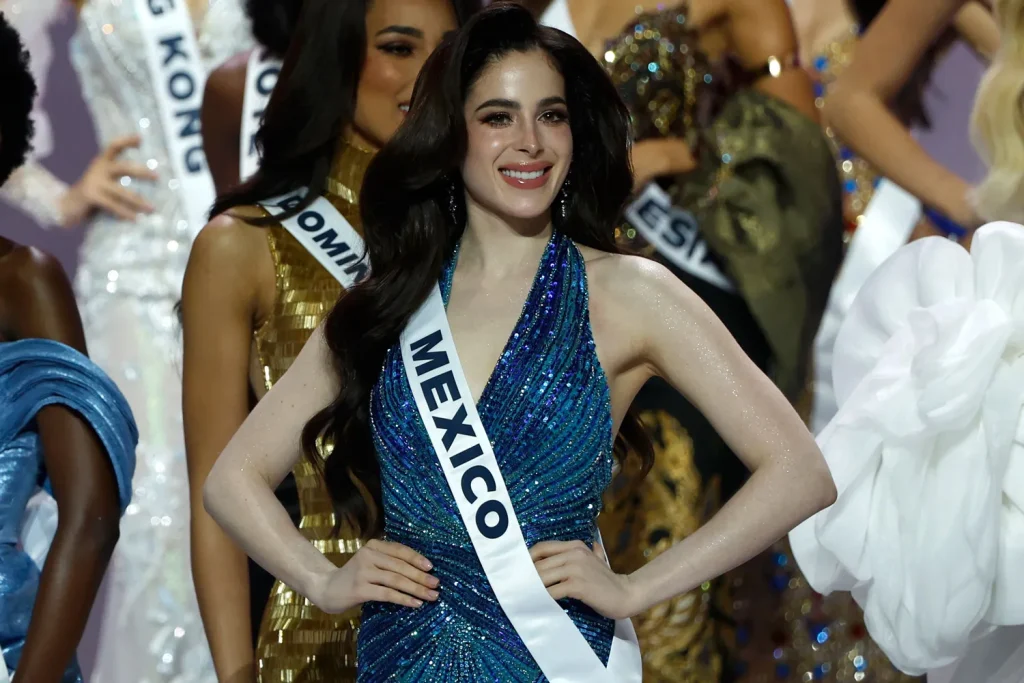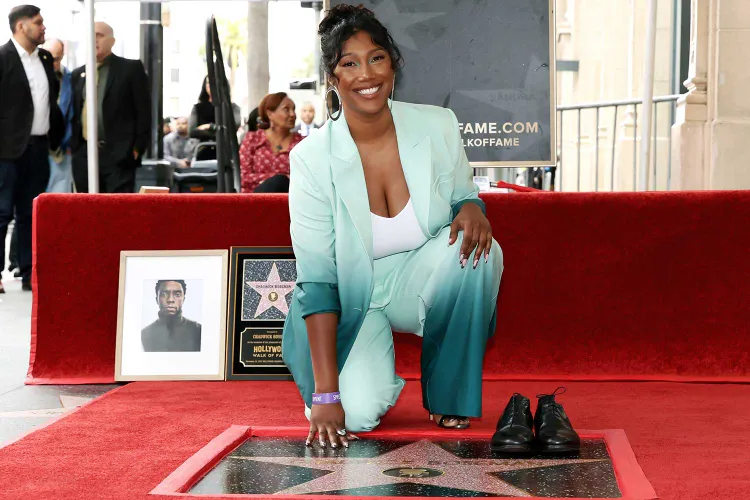Miss Universe 2025: Fátima Bosch Crowned Queen Just Weeks After Shocking Confrontation Sparks Contestant Rebellion and Global Outrage
Under the electric glow of spotlights in Bangkok’s Impact Challenger Hall, where the air hummed with the collective breath of 120 nations’ hopes, Fátima Bosch stood poised on the edge of destiny. It was November 20, 2025, and the 74th Miss Universe pageant unfolded like a tapestry woven from threads of glamour, grit, and unyielding grace—a spectacle that had already been scarred by scandal but refused to dim its shine. At 25, the poised designer from Tabasco, Mexico, embodied the very evolution the pageant so desperately sought: not just beauty, but a fierce advocacy for authenticity, sustainability, and the quiet power of standing tall when the world tries to push you down. When her name echoed through the arena as the victor, crowned by Denmark’s Victoria Kjær Theilvig in a moment that blurred tears and triumph, it wasn’t merely a coronation. It was redemption, a poetic full-circle for a woman whose journey had ignited firestorms just two weeks prior. Bosch’s win, her country’s fourth in the pageant’s storied history, sent ripples of joy across Mexico and whispers of vindication worldwide, proving that sometimes, the crown finds the one bold enough to demand respect before claiming it.

To understand the weight of that glittering tiara—the Lumière de l’Infini, a $5 million marvel of infinite light— one must rewind to the humid haze of early November, when the Miss Universe caravan descended on Thailand like a flock of phoenixes, each contestant carrying dreams forged in national spotlights. Fátima Bosch, with her raven waves and eyes that held the depth of ancient cenotes, arrived not as a wide-eyed novice but as a force refined by fire. Born in Villahermosa, Tabasco, she was the first from her state to claim the Miss Universe Mexico title earlier that year, a milestone that felt like destiny’s nod to her roots. At 17, she’d been crowned Flor Tabasco, a floral queen whose petals masked a budding activist’s resolve. She chased that bloom to Universidad Iberoamericana in Mexico City, immersing herself in fashion and apparel design, then crossed oceans to Milan’s NABA—Nuova Accademia di Belle Arti—where runways whispered secrets of couture and conscience. There, amid sketches and silk, Bosch discovered her calling: sustainable fashion, transforming discarded fabrics into wearable stories of renewal. “True beauty is in service, kindness, and light,” she’d say, her voice a gentle current pulling others toward empathy. Back home, she volunteered with humanitarian causes, stitching communities together one thread at a time, her platform a beacon for young women to embrace their scars as strengths.

Yet, as rehearsals kicked off in Nonthaburi, north of Bangkok, the pageant’s underbelly revealed itself in stark, livestreamed cruelty. On November 4, during a mandatory pre-event briefing streamed on the Miss Universe Thailand Facebook page, the room crackled with unspoken tension. Seated in neat rows, sashed and serene, the delegates listened as Nawat Itsaragrisil, the Thai media mogul and co-owner of the Miss Grand International pageant, took the microphone. A fixture in Thailand’s beauty scene since acquiring stakes in Miss Universe through JKN Global Media in 2022, Nawat’s words were meant to rally—urging the women to promote their host nation on social media, to weave Thailand’s vibrant tapestry into their posts. But when his gaze locked on Bosch, the tone shifted from encouragement to accusation. He claimed she’d skipped a group photoshoot, a promotional rite essential to the pageant’s $20 million Thai windfall, tied to broadcasting rights and tourism boosts. “You’re in Thailand. You’re in a game,” he warned, his voice rising like a summer storm. Denials from Bosch—that she’d participated but perhaps not posted—fell on deaf ears. “Dummy,” he snapped, the word slicing through the feed like a misplaced sequin, sharp and unforgiving. Security loomed at the door, summoned as if she were a disruptor, not a delegate.

In that instant, the room fractured. Bosch, her composure a fragile armor over hurt, rose quietly and walked out, her heels echoing a silent protest. But she didn’t leave alone. One by one, sisters in sash followed—Miss Universe 2024 Victoria Kjær Theilvig among them, her presence a shield of solidarity. “This is about women’s rights,” Theilvig would later declare, her Danish poise unyielding. “To trash another girl, it’s beyond disrespectful.” The walkout, captured in raw pixels, exploded online: millions of views, hashtags like #StandWithFatima trending from Mexico City to Manila. Bosch, addressing reporters in a tear-streaked video shared by pageantry insiders, didn’t whisper her pain. “What your director did is not respectful: he called me dumb,” she said, her accent a melody of measured fury. “If it takes away your dignity, you need to go. The world needs to see this.” It was a clarion call, echoing the pageant’s own mantra of empowerment, now turned inward like a mirror held to its flaws.
The fallout was swift and seismic, a reminder that in 2025, no corner of glamour escapes the court’s unblinking eye. Nawat, his face crumpling in a tearful press conference the next day, issued apologies that rang hollow to many. “I am human. I didn’t want to do anything like that,” he choked out, but the damage lingered like perfume gone sour. The Miss Universe Organization, under co-owner Raúl Rocha Cantú—a Mexican businessman whose heritage made the slight personal—condemned the act outright. In a video statement, Rocha decried the “humiliation, insult, and lack of respect,” vowing to limit Nawat’s involvement and pursue legal recourse. A high-level delegation, led by CEO Mario Búcaro, jetted to Thailand, transforming the host city into a stage for accountability. Miss Universe México amplified the chorus: “No woman, on any stage, deserves to be insulted or humiliated.” Fans, from tabloid readers to TikTok activists, rallied—petitions surged, brands paused partnerships, and the narrative flipped from sequins to solidarity. Bosch, in the eye of the storm, emerged not broken but burnished, her vulnerability a superpower that humanized the heels-and-highlights world.

But the tempests didn’t subside; they swelled. As the competition barreled toward its finale, fresh fissures cracked the facade. Judges bolted like startled gazelles: Lebanese-French composer Omar Harfouch resigned mid-week, igniting powder kegs with claims of rigging. On Instagram, he alleged a secret “impromptu jury” had pre-selected the top 30, bypassing the official panel and tainted by conflicts—like an alleged affair between a vote-counter and a contestant. “I could not stand before the public and pretend to legitimize a vote I never took part in,” Harfouch declared, his words a gauntlet thrown. French soccer legend Claude Makélélé followed, citing personal reasons that smelled of unease. Even the selection committee president dipped out, leaving the eight-member bench wobbling. The organization fired back, dismissing Harfouch’s “inaccuracies” as confusion over the “Beyond the Crown” social impact program—an independent arm spotlighting delegates’ philanthropy, not the main event. A clarifying Instagram carousel named the committee, but skeptics scrolled past, murmurs of “fixed” festering in comment threads. Whispers of Chilean contestant Inna Moll’s ill-advised TikTok—mimicking drug use in a makeup tutorial—added fuel, while Miss Teen Cambodia’s border-clash speech from the sidelines underscored the pageant’s precarious perch on global fault lines.
Through it all, Bosch glided forward, her steps a quiet revolution. The preliminaries painted her as a frontrunner: swimsuit rounds where her lithe form moved with the ease of someone who’d danced through design studios; national costume showcases blending Tabasco’s lush heritage with eco-conscious threads; evening gowns that draped like midnight rivers, whispering sustainability’s sermon. Crowds in Nonthaburi’s packed arena—over 10,000 strong—chanted her name, their fervor a balm to the bruises. She wasn’t alone in shining: Miss Thailand Praveena Singh, 29, commanded home-soil cheers with her poised elegance; Venezuela’s Stephany Adriana Abasali Nasser, 25, brought firebrand charisma; Côte d’Ivoire’s Olivia Yacé turned heads with unapologetic strength; and the Philippines’ Ahtisa Manalo, a third runner-up, wove tales of rising from poverty through sheer will. India’s Manika Vishwakarma, Rajasthan’s resilient rose, fought valiantly but bowed out before the top 12, her journey a testament to the pageant’s global heartbeat.
The finale, broadcast live to millions across Telemundo, E! and streaming platforms, pulsed with high-stakes poetry. Hosted by a glittering ensemble—former winners Dayanara Torres and R’Bonney Gabriel, comedian Steve Byrne—the night narrowed 120 to 30 after swimsuits, then 12 in gowns, each silhouette a story untold. The top five faced the spotlight’s interrogation: What global crisis would you champion at the United Nations? How would you wield this crown to uplift girls? Bosch’s response, delivered with the clarity of someone who’d stared down storms, cut deepest. “As Miss Universe, I will say to them, believe in the power of your authenticity,” she urged, her words a lifeline tossed to dreamers everywhere. It was the ethos that had carried her from that bruising briefing to this brink of glory—raw, real, revolutionary.
When the envelope tore and her name rang out, the arena erupted: confetti rained like blessings, tears traced mascara trails, and Mexico’s flag waved wild. Theilvig, passing the crown with a sister’s embrace, whispered words lost to the roar, but their import lingered— a handover not just of jewels, but of a legacy redefined. First runner-up Praveena Singh, second Stephany Abasali, third Ahtisa Manalo, fourth Olivia Yacé: each a pillar in the pantheon. Bosch, bouquet in hand, sash gleaming, turned to the cameras with a smile that bridged hurt and hope. “I would like to be remembered as a person that changed a little bit the prototype of what is a Miss Universe,” she told reporters post-coronation, “a real person that gives the heart.” Her prizes? A $100,000 scholarship (per tradition, though exact figures vary), a diamond-encrusted crown worth millions, a year in a Manhattan penthouse, and a platform to amplify her sustainable fashion crusade—perhaps launching lines from upcycled Thai silks or Tabasco blooms.
In the quiet dawn after, as Bangkok’s chaos softened to serenity, Bosch’s victory felt like the pageant’s phoenix song. Miss Universe, born in 1952 from a California swimsuit brand, has weathered eras—from Trump’s ownership to inclusivity’s dawn, now embracing married mothers and gender-fluid entrants. Yet 2025’s edition, mired in walkouts and whispers, emerged stronger, its scars a map to progress. For Bosch, the crown is no endpoint; it’s ignition. She’ll traverse the globe, her voice a vessel for the voiceless, proving that beauty’s truest measure lies in the courage to confront, to create, to care. As Puerto Rico gears for 2026’s diamond jubilee at the José Miguel Agrelot Coliseum, the world watches not just for gowns and glory, but for the women who wear their truths like armor. Fátima Bosch, from Tabasco’s heart to the universe’s helm, reminds us: in a world quick to dim lights, the boldest shine eternal.



